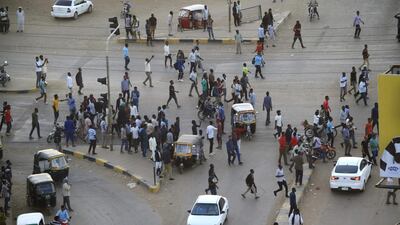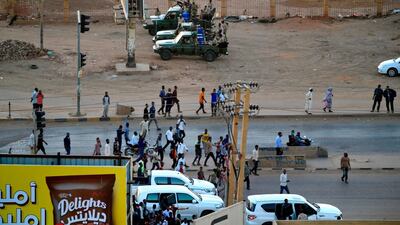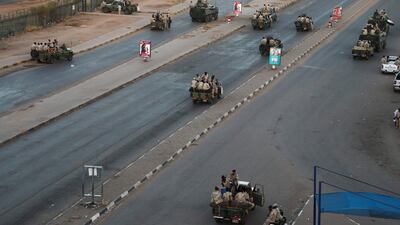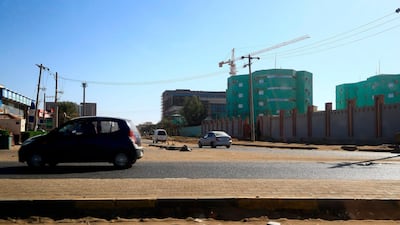Sudan’s leadership yesterday said five people were killed as it put down a rebellion by security agents.
Airspace over Sudan was closed for hours on Tuesday night as security agents closely linked to ousted leader Omar Al Bashir launched an attempt to force the transitional government to change planned severance pay reforms.
Gen Abdel Fattah Al Burhan, head of the country’s ruling transitional council, announced that “life has returned to normal” after the tense stand-off between the armed forces and rogue intelligence officers who had fired shots in the air.
“We will not allow any coup against the Sudanese revolution,” Gen Al Burhan said.
The sounds of gunshots and videos of the rebellion circulating on social media shocked Khartoum, which has remained largely peaceful as the transitional government works slowly towards elections.
Late on Tuesday evening, security agents from the Directorate of General Intelligence Service, formerly known as the National Intelligence and Security Service (Niss), began a rebellion over the amount of money allocated when taking retirement, government spokesman Faisal Mohamed Saleh said.
Troops from the regular army and from the paramilitary Rapid Support Force (RSF) later stormed the bases amid heavy gunfire.
Two of their officers and three others died, said Sudan’s Chief of Staff, Lt Gen Osman Mohamed Al Hassan.
“We decided to storm the bases to end this rebellion ... we have now taken control of these bases,” Gen Al Hassan said.
Doctors close to the protest movement that led to Al Bashir’s ousting said that three civilians, all from the same family, were killed by bullets near a Niss base in south Khartoum. A teenager was wounded.
All streets leading to the two bases were cordoned off, causing traffic jams, witnesses said.
Niss played a part in a crackdown on pro-democracy protesters throughout the demonstrations the fall of Al Bashir. Twenty-nine Niss agents were sentenced to death by a Sudanese court in December for the torture and killing of protester Ahmed Al Kheir in February last year.
Gen Al Burhan’s deputy, RSF commander Gen Mohamed Daglo, blamed the former Niss chief for the rebellion.
“What happened today is a plan by Salah Gosh and some other officers,” Gen Daglo said in the South Sudanese capital of Juba.
Mr Gosh, a key figure in the Al Bashir regime, stepped down days after the veteran leader was toppled. His whereabouts are unknown.
Khartoum International Airport reopened yesterday after the authorities shut it when the shooting erupted. One of the Niss bases is close to the airport.
Despite the reopening of airspace by Sudanese authorities, all flights to Sudan from neighbouring Egypt were suspended over security concerns, airport authorities said.
Production also resumed at two oilfields in the war-torn western region of Darfur after government forces retook them, Oil Minister Adel Ibrahim said. Some “rebel members” of Niss had taken control of the Sufian and Hadid fields in East Darfur state but had now surrendered to government forces, Mr Ibrahim said.






